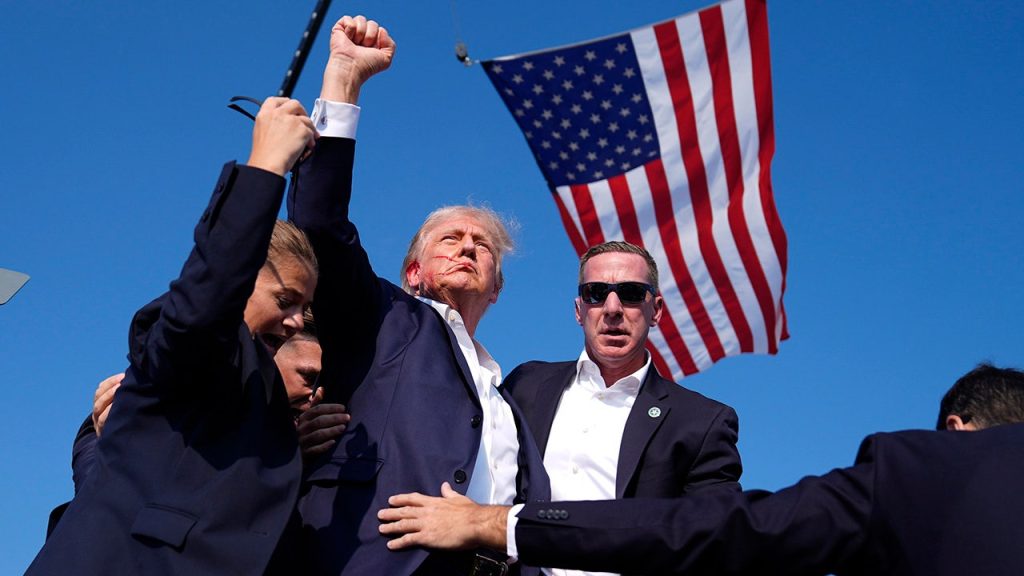The House’s bipartisan task force investigating the attempted assassination of then-President-elect Trump in Butler, Pennsylvania, convened a hearing to examine the Secret Service’s failures and propose reforms. Despite achieving bipartisan consensus on the Secret Service’s shortcomings and acknowledging improvements such as increased drone usage and enhanced communication with local law enforcement, the hearing was ultimately overshadowed by a fiery exchange between Representative Pat Fallon (R-TX) and Acting Secret Service Director Ronald Rowe. The task force, composed of 13 members, emphasized their collaborative approach, transcending party lines to address the security lapse. However, their efforts to uncover the gunman’s motive and determine whether he acted alone were hampered by the Department of Justice’s refusal to share information about the gunman’s digital devices. This lack of cooperation left a significant gap in the investigation, frustrating lawmakers eager to gain a complete understanding of the incident.
Director Rowe, the sole witness at the hearing, acknowledged the gravity of the Secret Service’s failure and pledged accountability, although he refrained from providing specific examples of disciplinary actions. He expressed personal responsibility for the near-fatal incident and highlighted his reflections on the agency’s subpar performance. However, these statements were largely eclipsed by the explosive confrontation with Representative Fallon. This clash, unprecedented in its intensity, diverted attention from the substantive issues surrounding the assassination attempt and the Secret Service’s reform efforts. The hearing, meant to be a showcase of bipartisan cooperation and a platform for constructive dialogue, instead became a spectacle of animosity.
The confrontation stemmed from Fallon’s questioning about Rowe’s presence at a 9/11 memorial event alongside President Biden, Vice President Harris, President-elect Trump, and Senator JD Vance. Fallon presented photographs showing Rowe near the dignitaries and questioned his role at the event, specifically whether he was the Special Agent in Charge (SAC). Rowe’s response, emphasizing the solemnity of the occasion and his personal connection to the 9/11 tragedy, quickly escalated into a heated exchange. Fallon accused Rowe of prioritizing visibility and positioning himself for career advancement rather than fulfilling his protective duties, suggesting that Rowe’s actions endangered the lives of the protectees.
The exchange rapidly deteriorated into a shouting match, with both men accusing each other of being “out of line” and engaging in personal attacks. Rowe vehemently denied Fallon’s accusations, asserting that he was present at Ground Zero to pay respects, a claim Fallon dismissed as “horse hockey.” Fallon further alleged that Rowe’s actions at the 9/11 memorial event demonstrated a pattern of prioritizing personal gain over the safety of those under his protection, drawing a parallel to the security failures in Butler, Pennsylvania. The heated nature of the exchange underscored the deep-seated tensions simmering beneath the surface of the hearing.
Fallon’s line of questioning implied that Rowe’s presence at the 9/11 memorial was a calculated move to enhance his public profile and potentially secure a permanent appointment as Secret Service Director. Rowe, becoming increasingly agitated, refuted these allegations and insisted that he was carrying a radio, vest, and weapon, fulfilling his security responsibilities. The verbal sparring continued, with Fallon suggesting that Rowe had endangered the lives of President Biden and Vice President Harris by improperly positioning himself and other agents. This accusation ignited Rowe’s fury, leading to a cacophony of raised voices and pointed fingers.
The explosive confrontation between Fallon and Rowe effectively overshadowed the hearing’s intended focus on the Secret Service’s failures and subsequent reforms. The bipartisan spirit of the task force, evident in their collaborative approach to the investigation, was lost in the maelstrom of personal attacks and accusations. The dramatic exchange, unlike anything witnessed in recent Congressional hearings, became the dominant narrative, eclipsing the substantive issues at hand. While the task force aimed to address critical security concerns and promote bipartisan solutions, the public’s attention was captivated by the spectacle of the Fallon-Rowe clash, leaving the crucial findings and recommendations of the task force largely forgotten. Fallon, in the aftermath of the confrontation, blamed Rowe for instigating the conflict, claiming that Rowe “started screaming.” Rowe, however, departed the Capitol without offering his perspective on the incident. The dramatic fallout from the hearing serves as a stark reminder of how personal conflicts can derail even the most well-intentioned efforts at bipartisan cooperation.


